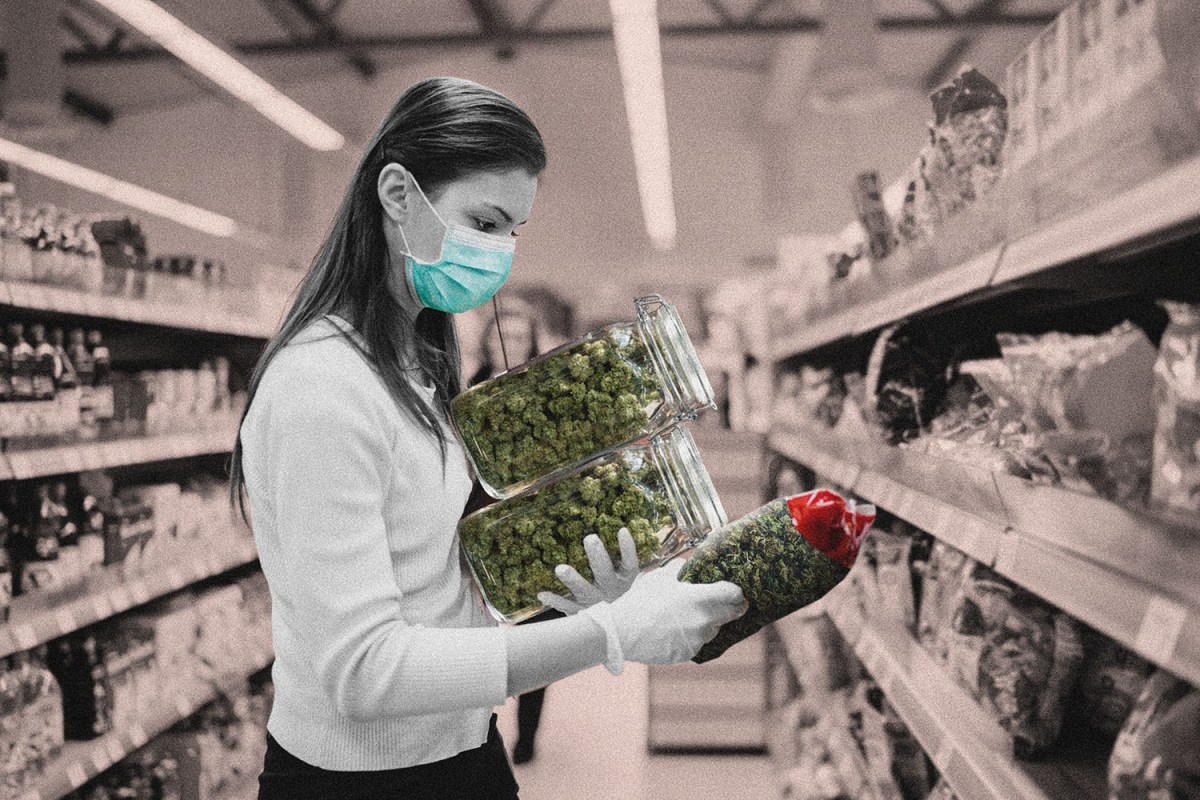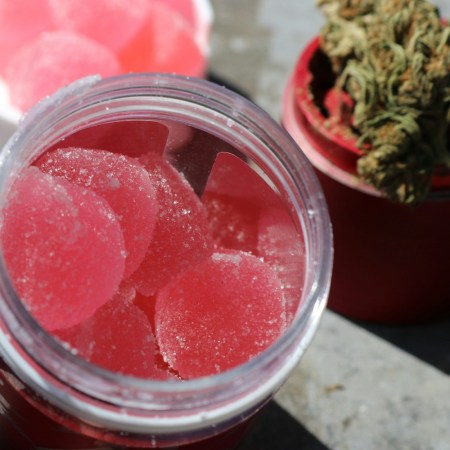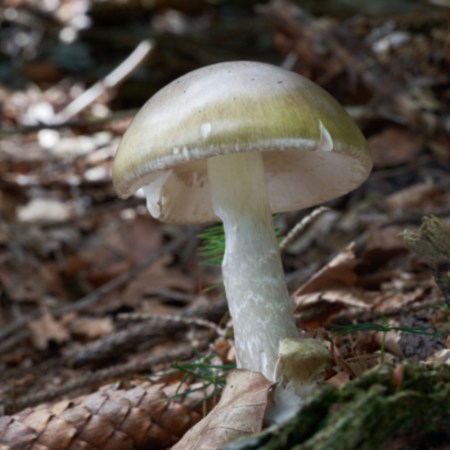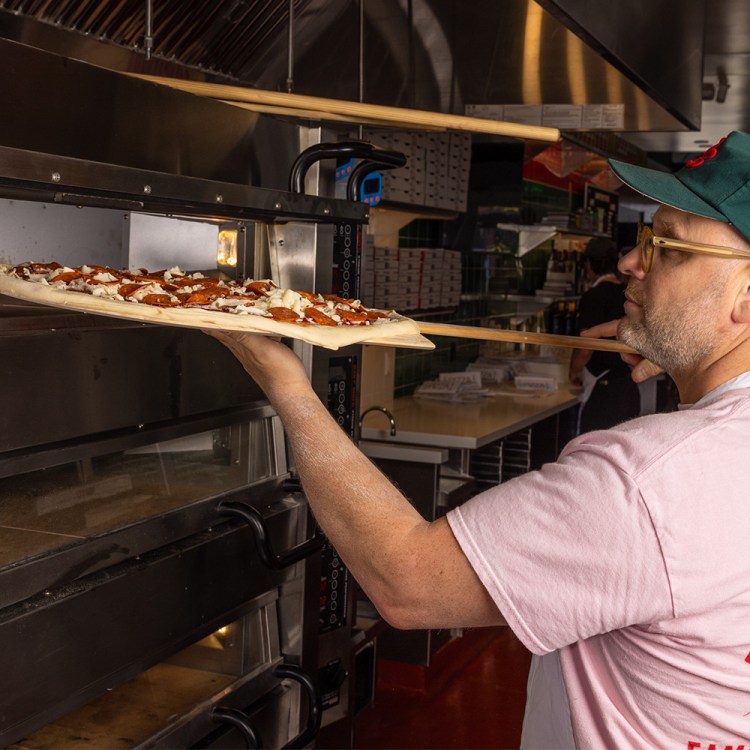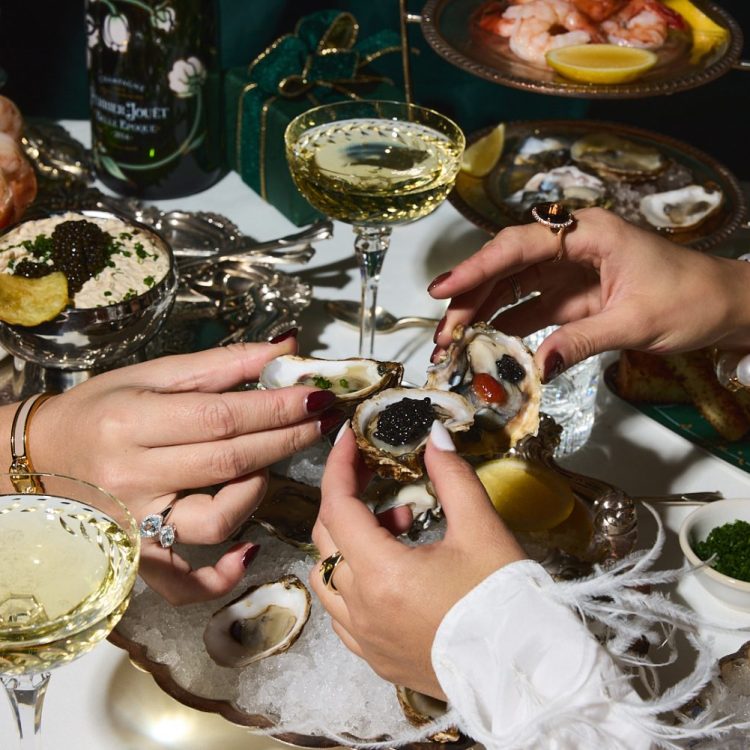Tim Dodd is a member of Firefly Cycling Club, which does intra-city rides to raise money for good causes. After riding from San Francisco to Los Angeles, he decided he wanted to train for the Geneva-to-Cannes trek, a 600-mile sojourn that scales some of the world’s steepest inclines.
To train, Dodd cycled the Santa Monica mountains. One clear morning, he set out on his custom titanium bike and woke up hours later in the hospital. The doctor asked him his name. No idea. He asked him what day it was. No idea. What year? He said 2016. It was 2018. The doctor then asked him to name the president, and Dodd replied, “Obama.” The doctor said that he had some bad news.
Obviously he crashed. Luckily, it was a nurse who found him. Despite some broken bones and a concussion, Dodd’s good physical condition had spared him, and nothing was misaligned. The bad news was that he was going to be in a lot of pain. “He basically gave me a huge jar of Oxycontin and said take two for pain as needed,” Dodd says. Dodd considered this “a really bad idea.” Instead, he turned to CBD and THC. “That was the way to go. I used edibles and lotion to get me to the point where I could walk without pain.”
Dodd, who went on to co-found Sweet Flower, a dispensary with three stores around L.A., notes that cannabis does three things that prescription drugs don’t: aids with sleep, appetite and inflammation. “Most of the pain I was getting was through inflammation of all the tissue around my joints,” he says. “And the bone-knitting process is super calorific-intensive, so you need to eat, and you can’t eat if you’re on these prescription drugs, because it basically messes up your insides.”
After a month, he gave the jar of Oxy back to the doctor, who was impressed by the pace of Dodd’s recovery. “There’s something in here beyond just the business aspects of Amazon-proof retail,” he remarks. “There’s something in the plant that’s helpful to people. We hear that a lot. It’s really remarkable. It’s crazy that cannabis is an ‘essential’ industry now, right after being this stigmatized, criminal endeavor for most of its life.”

This trend in public attitudes toward cannabis has been building for a while, and could be solidified in the pandemic as folks seek new ways to alleviate anxiety and stress at home. But it’s not the only notable trend within the industry at the moment: elsewhere, innovations in commerce and distribution that were already budding pre-COVID are finally starting to flower.
White-Glove (and Mask) Delivery Is Here to Stay
California is one of the few states that deemed cannabis an essential business from the start of the shelter-in-place order, though other states have followed suit. According to data collected by BDSA, a market research company, the industry saw a 69% spike in sales on March 13th, a stockpiling effect from the shelter-in-place order, followed by a sharp decline in sales afterwards. Taken alone, California’s decline in sales isn’t as bad. In fact, it’s been roughly on par with sales for 2019, and much of the decline comes from the lack of tourists. Colorado’s sales jumped when the state deemed it essential, and then jumped again once the government announced its stimulus package.
This has been mirrored at Sweet Flower. Kiana Anvaripour, Sweet Flower CMO, says, “We initially saw a two- to three-times increase in sales when the pandemic started. Consumers were likely worried about scarcity, which contributed to higher-than-normal purchase behavior. Things have since normalized, with a slight overall increase to sales pre-COVID.”
Delivery is playing a huge role in this. California has long allowed for delivery, and Sweet Flower fortuitously introduced delivery to its customers last November. “We have seen a 60-65% sales channel shift from in-store walk-in sales to curbside pickup and delivery sales,” says Anvaripour. “As a result, we have hired 20-25 new drivers to provide a trusted and store-branded delivery experience, and have expanded our delivery area to service customer demand throughout greater Los Angeles.”
Kate Miller, co-founder of Miss Grass, an eComm site, also saw a spike in sales, but thinks it may be too early to know if it’s sustainable. “I think that my prediction in looking at other industries and other companies is that it’ll probably be quite volatile for the foreseeable future,” says Miller. “Given how many people this pandemic has impacted in terms of no longer receiving an income and the economy plummeting, I think we’ll also see consumer behavior tighten up their spending.” But she also points out that given the plant’s health aspects, her industry could potentially weather the storm better than most.
It’s worth pointing out that delivery has always been a huge part of the weed trade in illicit markets, like New York (just look at the friendly cycling dealer in High Maintenance). But in California, delivery always struggled, in part because of the geography. Now, there’s the concern of safety, too.
Sweet Flower’s drivers arrive wearing protective masks and gloves, but also with a friendly disposition, toting a modish bag with products that look like boutique consumer goods. “I think it’s just a pivot,” says Dodd. “Delivery is going to become a very important part of the business, and we’ve seen that.”
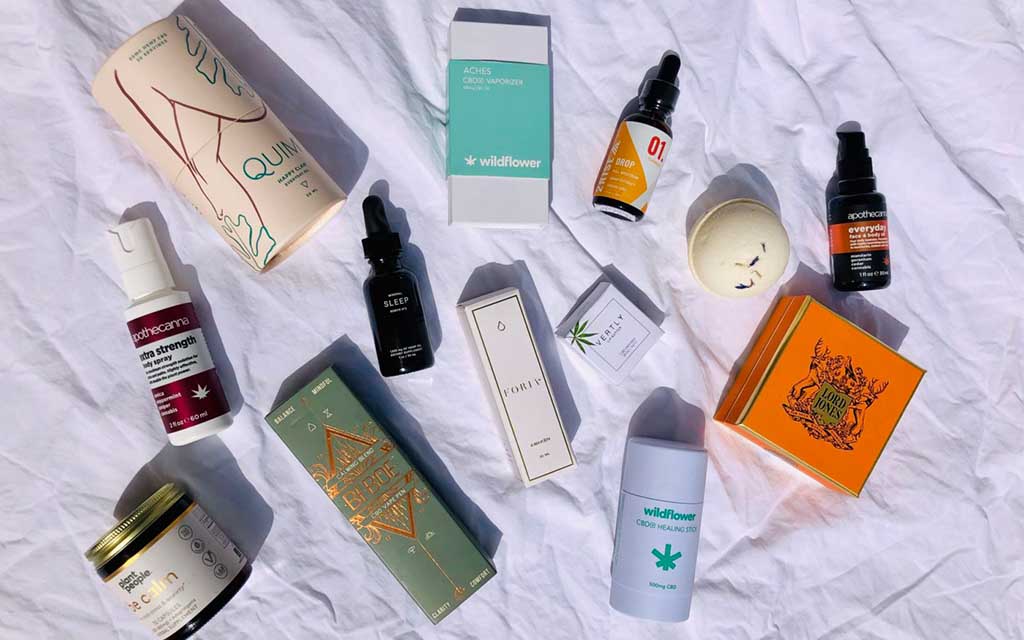
Part of the delay in delivery becoming the norm has owed to regulatory hurdles. But it’s also quality control. Prior to Sweet Flower, Dodd worked at Time Warner, and notes how important delivery is important to get right. “It’s the ultimate permission,” he says. Delivery hinges on a good customer experience, especially in cannabis, where veteran customers are often looking for something specific and new users want advice on what they should buy. Having a knowledgeable staff is paramount.
Quality Begins With Being Informed Enough to Recognize It
Prior to COVID-19, 40-45% of Sweet Flower’s customers were new users, and Dodd says that since March, that number is now 80%. “Some people were coming from different dispensaries that were either out of stock or weren’t open or weren’t staffed correctly,” he says. “That was part of it. Part of it was different people who were just new to cannabis, period.”
Sweet Flower regularly communicates with its customers via social media to gather intel and input. Kate Miller’s company, Miss Grass, takes this even a step further: “I want to build this contextual commerce platform,” Miller says, remarking on the lack of reliable educational materials around cannabis. “There’s so many new consumers that are entering this space, I want to start with education, equipping them with information that can help them be conscious consumers with this plant.”
On April 20th, the unofficial cannabis holiday, Miss Grass held a summit on Zoom that consisted of roundtables with industry vets. Miller held the opening panel with Chelsea Handler, a funny discussion on “getting good at weed” in which they talked about dosage and how to relax with it. Handler has her own line of CBD products called Bloom Farms. Later, a group of ladies discussed using cannabis for an enhanced sexual experience, and Vanessa Lavorato, the former co-host of Vice’s Bong Appetit, did a workshop on how to infuse butter at home.
The emergence of more women in leadership roles is a trend that has steadily grown as the cannabis industry has moved toward the mainstream. Miller became interested in cannabis in high school when her brother was kicked out of school for possessing it, an injustice she found absurd given the benefits of the plant. While attending college at USC, she worked at a dispensary in downtown L.A., and was disenchanted with the stoner-bro vibe of the products, as well as the quality. “We sold a ton of what’s called shake, which is trim, pretty much, really crappy, cheap weed,” she says. “I didn’t feel that the brands were speaking to me.”
Miss Grass is like Mr. Porter or Goop in that it creates content and disseminates information alongside an e-commerce shop that’s extremely vetted and tested. “We meet the owners, making sure that their stories align, so on and so forth,” she says. “We use content and storytelling to really equip consumers with the resources they need to be conscious consumers in this space. Just like they are across other verticals in their life, like beauty and food and fashion. Cannabis should be no different.”
High-End Retail
Like food or alcohol, cannabis is a unique product in that it’s both a consumable product and an experience. Until recently, dispensaries didn’t make much of an effort to sell or differentiate the experience aspect; people wanted weed, and dispensaries supplied it. But that’s changed. As Miller says: “As any industry matures, consumers start to have more choice.”
When it comes to choice and innovation, California definitely leads the way, with products that have expanded far beyond raw flowers to include brands like Kiva, a confection company, or CANN, a new line of cannabis-infused beverages that taste like spritzers.
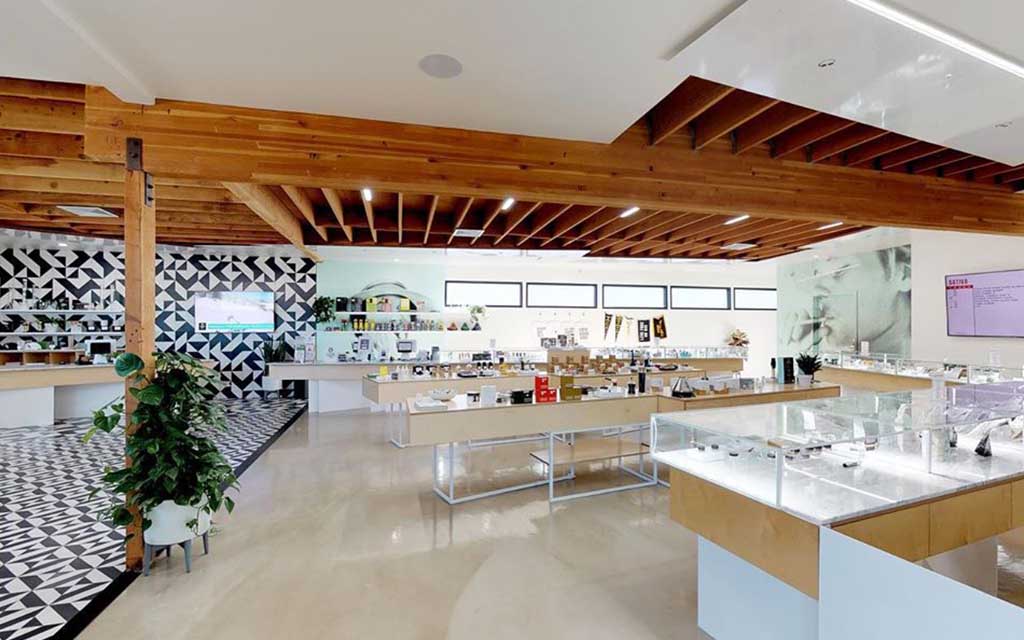
“I think curation is very underrated and underproduced in the cannabis space,” says Seti, the mononymous founder of Cut & Dry, a stylish flower brand that reads something like the Gap of weed. His strains are labeled work, play and home. This effects-based architecture will only deepen as people seek relief for specific needs. Seti points to famous high-end shops like the now-shuttered Colette in Paris as exemplars of experiential retail, a target that dispensaries like The Pottery and Sweet Flower are aiming for. When stores reopen and normalcy comes back, retail stores that offer a comfortable, refined experience will be best primed for success.
A Kinder Business Model
When speaking with Dodd, he often talks about Amazon-proof retail, denoting how a corporation like Amazon is unlikely to get into cannabis because of the regulations. But the other way these brands are distinguishing themselves from Bezos is with their ethics.
All of the brands discussed here have kept their employees on staff throughout the pandemic. Sweet Flower paid its workers bonuses and has taken extra measures to ensure their safety. Seti at Cut & Dry has distancing policies in place at his facilities, and he’s now taking the time to help other producers reconsider their packaging. “I want the world to be a more thoughtful and compassionate place,” he says. “Cannabis, the industry itself, creates so much waste. People are happily putting packages within packages within packages.”
“If anything, I’d argue it’s even more important in this space to be a conscious consumer given the history of this industry, and the war on drugs, and how disproportionately it impacted people of color,” says Miller. All of the proceeds from her 4/20 Summit and sales from her online shop that day went to The Last Prisoner Project. “Forty-thousand people are still in jail for weed,” she says. “When we smoke with impunity or we have a cannabis conversation in the same conversation that we’re talking about yoga and wellness, it’s extremely important to us that we shine a light on all of that.”
There are some bad players entering the field, to be sure. That John Boehner sits on the board of a cannabis company, profiting from a plant that he as a politician not only demonized but used as a tool to jail many African Americans, strikes a particularly discordant note. However, that’s not the norm. Many industries are becoming more conscious as their consumers do, too, and this pandemic could serve as fuel for that trend.
“Maybe this is naive optimism, but I do feel optimistic that conscious capitalism is the wave of the future across all industries,” says Miller. “And of course, it’s extremely important in cannabis, given its history.”
This article was featured in the InsideHook SF newsletter. Sign up now for more from the Bay Area.
